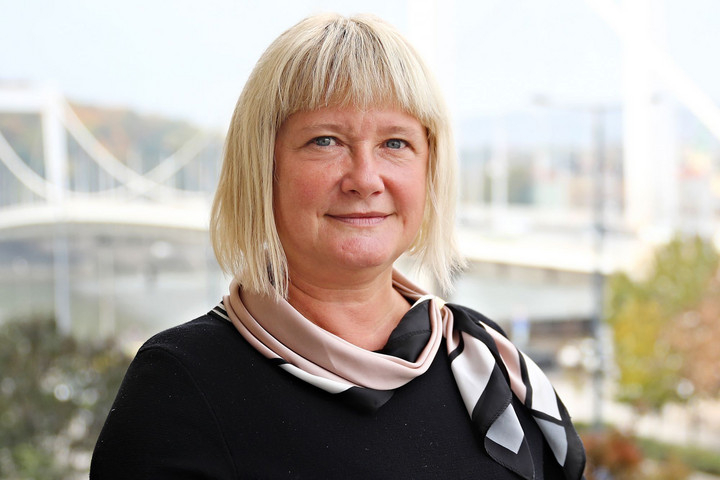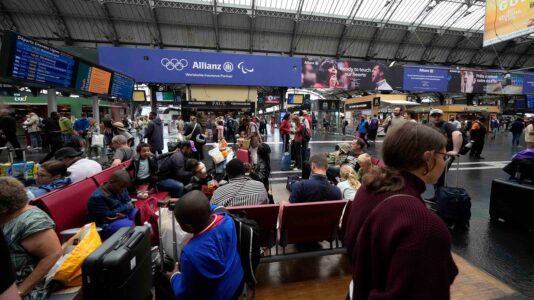Kinga Gál has been vice president of Fidesz since 2021 and is now serving as first vice president of the European Parliament’s Patriots for Europe grouping. This interview has been shortened in some areas.
Patriots for Europe wants to offer a European alternative. What does this name mean? And how much weight will Fidesz have in the European Parliament and in the group itself?
Our name faithfully shows who we are and how we will be active: for our country and Europe. We are all proud patriots who want to preserve Europe as we know it, as we have inherited it. Our goal is to bring peace and security back to the continent and to reaffirm the principles on which the founding fathers dreamed up the European Union.
We believe in a Europe based on cooperation and based on mutual respect, which protects its borders and preserves its cultural identity while respecting the differences between nations and rejecting the idea of a European superstate. We want to build the future of Europe on these pillars.
What exactly is the alternative you seek?
What is important to us is the protection of national sovereignty against the centralist and federalist aspirations of Brussels; it is also important to act against illegal migration, protect our external borders, and improve European competitiveness instead of the toxic green destructive tendencies.
Patriots for Europe is making its debut as a successful initiative, since with 15 parties and 84 representatives, we have formed the third-largest faction in the parliament. I am especially proud that this was possible, among other things, at the initiative of the Hungarian Prime Minister (Orbán): Fidesz is the second-largest party in the faction, and I will work as first vice-president to achieve our common goals.
According to Viktor Orbán, the Patriots could soon become the second-largest EP faction. When and how?
Building strong, effective alliances is key. The establishment of the faction is a great achievement in itself, but the long-term goal is to become bigger and stronger, to be able to meaningfully influence European politics.
In terms of our efficiency and effectiveness, it will also be important to develop effective cooperation with the faction of the conservatives (ECR) in addition to comprehensive political and other specific issues. Based on recent discussions, I am optimistic about this. We believe that we can return European politics to the path of common sense and people-centeredness, where the leaders do not want to comply with the media pressure of the left-liberal elite in Brussels or external interests, but instead represent the will of their voters.
Faith in the future of the continent must be returned to the people of Europe!
A general criticism is that those driven by strong (national) interests have a harder time working together. What do you think about this?
Due to different national characteristics, it may happen that parties have different interests related to certain issues. However, we do not see this as a problem, but rather respect national diversity. We try to determine the points where cooperation is possible despite different approaches. We managed to agree on this principle.
After the three party presidents in Vienna accepted the Patriots’ manifesto and announced the goal of founding a faction, a new party joined us almost every day. We can rightly call all of this historically significant since it is unprecedented in the history of the European Parliament for so many right-wing, conservative parties to find such a large faction in such a short time. That, in itself, is a huge success.
What kind of cooperation are the Patriots considering with the European Conservatives and Reformists?
As I indicated, we must work closely with the ECR group. Both (of us) are sovereignist, conservative party families, and currently represent the third and fourth largest forces in the EP. If we add up these two factions numerically, we can already speak of the second-largest force.
All of this has important consequences: A right-wing turn can be achieved in the European Parliament’s decision-making both in general, wide-ranging political matters and in individual policy topics. I will do my best to create a smooth, well-functioning partnership.
What do you think about the far-right and pro-Putin labels that the member parties regularly receive?
One thing is certain: We cannot be disturbed by these attacks. Our work will not be determined by the fear of the unprincipled attacks of the European left and media or the labels they attach to us, but by the promises we make to the people. Voters have given us the confidence to fight these battles.
How can (tensions with Hungary) affect frozen EU funds?
This debate goes back many years. Recently, Hungary has engaged in conflict with the leadership in Brussels on several issues.
We consistently stand for peace, oppose illegal migration, and say no to gender madness. We reject continuous centralization efforts and think of the EU as a Europe of nations. We proved to the committee that it is possible to approach these issues in a different way, and that there are other possibilities compared to the solutions of the European left. And this can set a dangerous precedent. That is why political attacks disguised as the rule of law began against Hungary, which reached the level of blackmail by freezing EU funds.
These unfair decisions are aimed at changing the way we think about things in the world. It is therefore clear that Hungary does not have access to its rightful resources for political reasons.
However, this is not the European Union we joined 20 years ago; what was once a promise of peace, security, prosperity, and fairness has now become a place of war danger, disunity, and ideological blackmail. The European Union must be brought back to the path of sanity and the practice of using EU funds for crude political pressure must be stopped.
How do you evaluate the process of distributing EU leadership positions?
As a result of the successive bad decisions of Brussels leaders in recent years, the European Union is in a bad state today.
Mistake after mistake has been made on both the issue of war and illegal migration, while the performance and competitiveness of the European economy are constantly deteriorating. It is clear from the results of the June election that people are dissatisfied with the decisions made in Brussels in previous years and their negative consequences.
Meanwhile, right-wing parties have achieved significant growth in Europe: They can count on the votes of tens of millions of voters. In comparison, it is clear that the left-wing pro-war forces, led by the European People’s Party (EPP), want to maintain the status quo.
That is why they made an unprincipled power deal on the distribution of leading positions, ignoring the shift to the right emerging from the voters’ decisions. With the cooperation of the EPP, a left-wing majority was created instead of a right-wing majority: a pro-war, pro-migration, anti-economic coalition.
And Ursula von der Leyen, who is responsible for the lion’s share of the bad decisions of the past five years, was re-elected as head of the European Commission.
Overall, what do you expect in the coming years?
All things considered, I am optimistic. People see through the charade, they cannot be fooled. For a while, the left-liberal elites in Brussels can pretend to be oblivious to the discontent and the crippling problems plaguing the continent. However, you cannot govern against people.
We can already feel the winds of change in Europe, and we will show that there is an alternative to the current ideology-driven politics.






